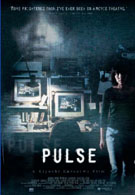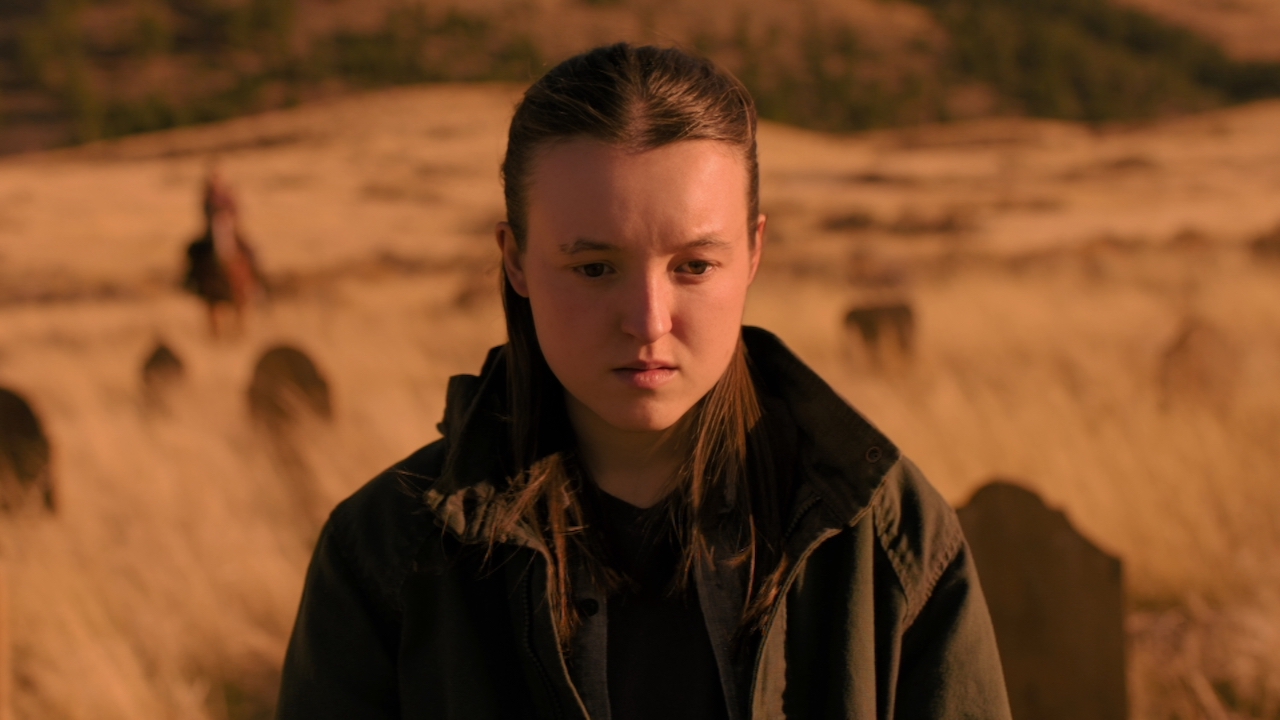I recently read that Japanese director Kiyoshi Kurosawa's films were an acquired taste, sort of like sushi. It's been years now that I've been trying, against ever-stiffening odds, to love raw fish, and I hate it as much as ever. As for Chaos, Kurosawa's 2000 horror flick just released in the U.S., I awoke from a brief nap with that acquired taste business on my mind. Unfortunately, the nap was taken in the middle of watching the film. I have no ready excuse: I wasn't out partying the night before with Paris, Lindsay, and Tara. The problem seems to be that, between the scary parts, the film moves very slowly and focuses on mundane things such as life at the office and riding the bus.
The Japanese have an expression that basically means every day is the same. It's "Owarinaki Nichijo-wo Ikiro", pronounced Owarinaki Nichijo-wo Ikiro. Japan certainly doesn't have a monopoly on the concept, but Kurosawa, in the course of an interview on SuicideGirls.com, an appropriate website given the plot of the film, stated that, in his work, "A foreign element comes into that daily routine, whether it's a tree or a jellyfish..." Or maybe a chunk of sushi?
Kurosawa, now fifty, has made over twenty films in as many years. He started out, as Japanese directors often do, by making porn films. He now considers himself the eldest and most experienced of the "young" generation of Japanese filmmakers. Two of his better-known films, neither of which I have seen or even heard of, are Charisma and Cure. In a 1999 pre-Chaos interview with the hoity-toity French literary publication, Journal L'Humanite (quite a contrast with SuicideGirls, meaning no naked chicks), Kurosawa stated that he had never expected to be understood by non-Japanese viewers of his films, and hadn't, up to that point, pushed for them to be exported. Now, six years later, heeeeeere's Chaos!
I've been stalling to get to the plot, and for good reason. To say it's hard to follow is being as obvious as noting that the Bush administration is neck-deep in ca-ca. I don't believe that my problem with the story is just because of that nap. Michi (Kumiko Aso), a twentyish employee of a Tokyo plant nursery, becomes concerned that her coworker, a young man named Taguchi (Kenji Mizuhashi), who was working at home on a computer disc, has not returned to the office as expected, and is not answering his phone. She goes to his apartment to check up on him, and finds him looking worn-out and acting strangely. He retreats into a back room, and she waits. And waits. Finally, she discovers him hanging from a rope.
Strange things, naturally, start to happen, mostly involving electronic devices. A television shuts off by itself, a cellphone transmits a cryptic, ghostly cry for help. Computers, wiring, and even chairs do unexpected things. Weird images appear on monitors, and even weirder stains show up on walls and floors, apparent Rorschach tests for our petrified psyches. Other nursery workers become embroiled in supernatural, tragic events.
The film has an overall coldness to it. We learn next to nothing about the characters, so there's nobody to root for. Visually, the film is interesting. Kurosawa makes good use of dim lighting, shadows, and even an opaque shower curtain to enhance the sense of alienation, separateness, and strangeness that the film, in its better moments, conveys. Kurosawa has said that, at the time the film was made, the internet was much younger and less familiar. That, perhaps, makes the use of computers and the net as conduits for the supernatural a bit old-hat today, and lowers the scariness quotient to about two boos on a scale of five.
My unfamiliarity with Japanese culture and language admittedly makes it difficult for me to judge the film. The sparse dialogue, as conveyed by the subtitles, seems to strive for weighty observations that come off as trite. "Nobody knows what happens when you die", "Maybe they'll invent a drug that prevents death", "We all live totally separated." Lost in translation? The film failed to engage me on any level in a sustained way. Perhaps, I thought, after seeing Pulse, I should give it another shot, and head for the theater with a fresh eye and renewed hope, as I had often edged towards the sushi table. But, you know what, I don't expect that much of a horror film, except to be entertained, and I wasn't by this one. I have a feeling that, even taking my cultural color-blindness into account, Pulse does not fulfill Kurosawa's stated intent, which is to scare us out of complacency while making cultural and philosophical points worth making.
The music by Takefumi Haketa is heavy-handed overall, though the film closes with an affecting song by Japanese artist Cocco. Pulse, after being purchased by Miramax in 2001 for the remake rights, and several stops and starts, has been placed in the hands of noted horror director Wes Craven (Nightmare on Elm Street, the Scream series). Kurosawa acknowledges that this remake project has gone forward without his consent or input. What's that about? In any event, scheduled release is in 2006. Based on Craven's track record, I'll bet his version will be lighter on the statements and weightier with the scares.











